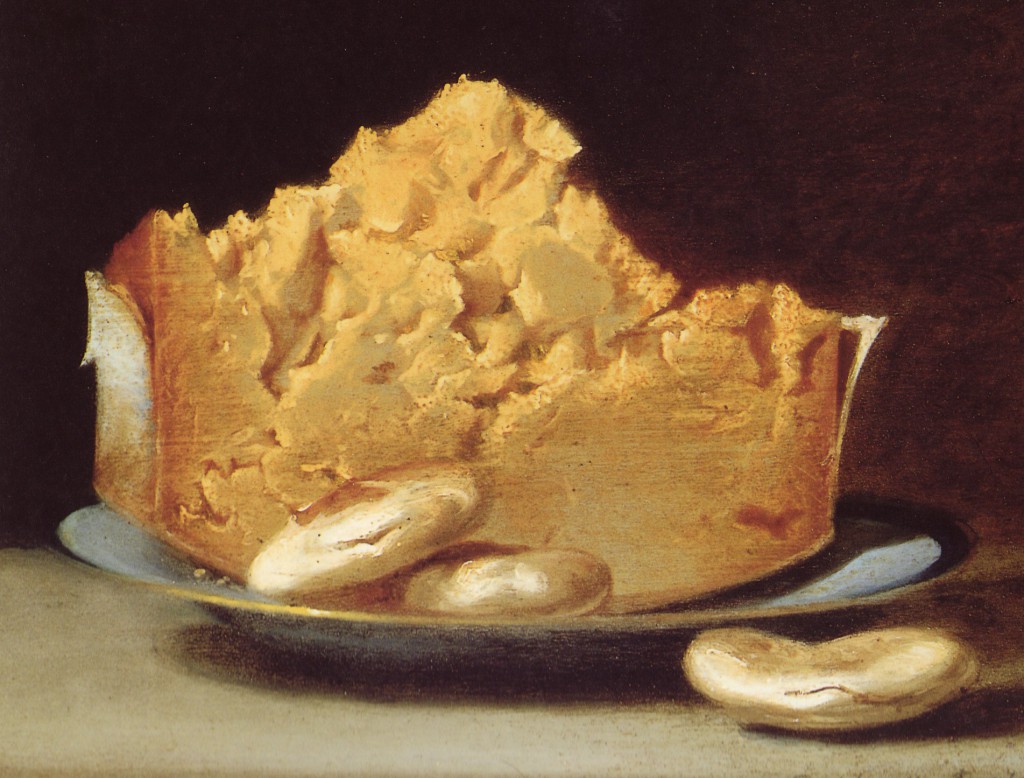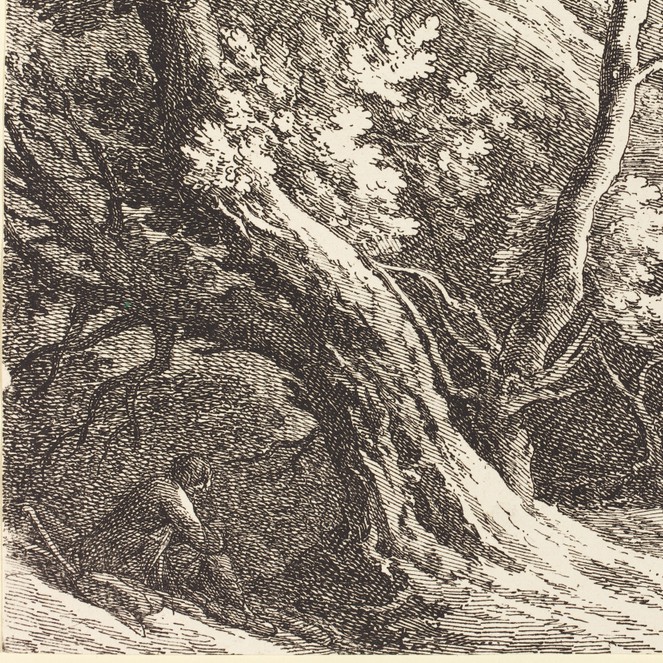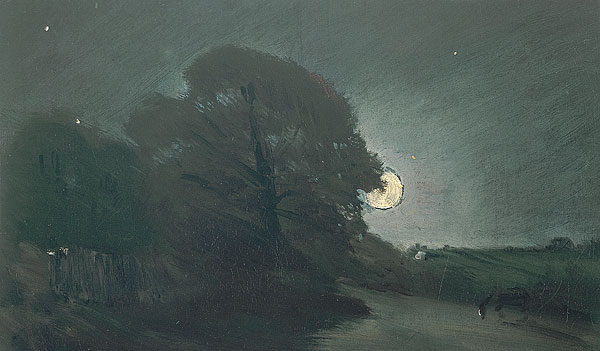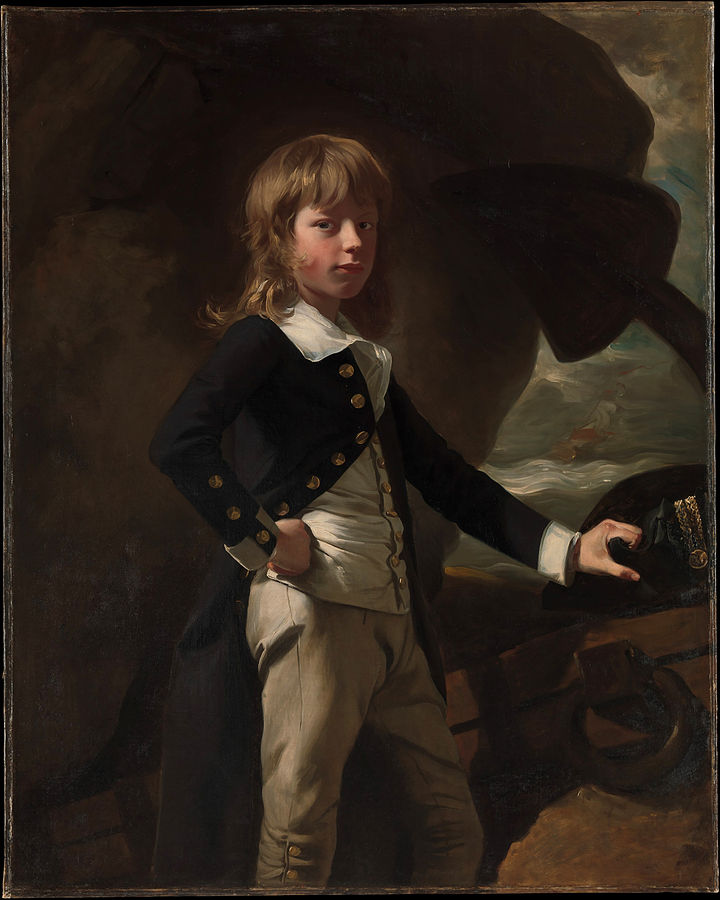Dear Poole,
From October, 1779, to October, 1781. I had asked my mother one evening to cut my cheese entire, so that I might toast it. This was no easy matter, it being a crumbly cheese. My mother, however, did it.

I went into the garden, for something or other, and in the mean time my brother Frank minced my cheese “to disappoint the favorite.” I returned, saw the exploit, and in an agony of passion flew at Frank. He pretended to have been seriously hurt by my blow, flung himself on the ground, and there lay with outstretched limbs. I hung over him moaning, and in a great fright; he leaped up, and with a horse-laugh gave me a severe blow in the face. I seized a knife, and was running at him, when my mother came in and took me by the arm. I expected a flogging, and struggling from her I ran away to a hill at the bottom of which the Otter flows, about one mile from Ottery.
There I stayed; my rage died away, but my obstinacy vanquished my fears, and taking out a little shilling book which had, at the end, morning and evening prayers, I very devoutly repeated them-thinking at the same time with inward and gloomy satisfaction how miserable my mother must be!

I distinctly remember my feelings when I saw a Mr. Vaughan pass over the bridge, at about a furlong’s distance, and how I watched the calves in the fields beyond the river.
It grew dark and I fell asleep. It was towards the latter end of October, and it proved a dreadful stormy night. I felt the cold in my sleep, and dreamt that I was pulling the blanket over me, and actually pulled over me a dry thorn bush which lay on the hill. In my sleep I had rolled from the top of the hill to within three yards of the river, which flowed by the unfenced edge at the bottom. I awoke several times, and finding myself wet and stiff and cold, closed my eyes that I might forget it. In the mean time my mother waited about half an hour, expecting my return when the sulks had evaporated. I not returning, she sent into the churchyard and round the town. Not found! Several men and all the boys were sent to ramble about and seek me.
![]() In vain! My mother was almost distracted; and at ten o’clock at night I was cried by the crier in Ottery, and in two villages near it. with a reward offered for me. No one went to bed; indeed, I believe half the town were up all the night. To return to myself. About five in the morning, or a little after, I was broad awake, and attempted to get up and walk; but I could not move. I saw the shepherds and workmen at a distance, and cried, but so faintly that it was impossible to hear me thirty yards off.
In vain! My mother was almost distracted; and at ten o’clock at night I was cried by the crier in Ottery, and in two villages near it. with a reward offered for me. No one went to bed; indeed, I believe half the town were up all the night. To return to myself. About five in the morning, or a little after, I was broad awake, and attempted to get up and walk; but I could not move. I saw the shepherds and workmen at a distance, and cried, but so faintly that it was impossible to hear me thirty yards off.
And there I might have lain and died; for I was now almost given over, the ponds and even the river, near where I was lying, having been dragged. But by good luck, Sir Stafford Northcote, who had been out all night, resolved to make one other trial, and came so near that he heard me crying. He carried me in his arms for near a quarter of a mile, when we met my father and Sir Stafford’s servants. I remember and never shall forget my father’s face as he looked upon me while I lay in the servant’s arms-so calm, and the tears stealing down his face; for I was the child of his old age. My mother, as you may suppose, was outrageous with joy.
This woman still lives in Ottery; and neither philosophy or religion have been able to conquer the antipathy which I feel towards her whenever I see her.
[Meantime] in rushed a young lady, crying out, “I hope you’ll whip him, Mrs. Coleridge!” This woman still lives in Ottery; and neither philosophy or religion have been able to conquer the antipathy which I feel towards her whenever I see her.
I was put to be and recovered in a day or so, but I was certainly injured. For I was weakly and subject to the ague for many years after.
My father (who had so little of parental ambition in him, that he had destined his children to be blacksmiths, etc. and had accomplished his intention but for my mother’s pride and spirit of aggrandizing her family) – my father had, however, resolved that I should be a parson. I read every book that came in my way without distinction; and my father was fond of me, and used to take me on his knee and hold long conversations with me.
I remember that at eight years old I walked with him one winter evening from a farmer’s house, a mile from Ottery, and he told me the names of the stars and how Jupiter was a thousand times larger than our world, and that the other twinkling stars were suns that had worlds rolling round them; and when I came home he shewed me how they rolled round. I heard him with a profound delight and admiration: but without the least mixture of wonder or incredulity.

For from my early reading of fairy tales and genii, etc., etc., my mind had been habituated to the Vast, and I never regarded my senses in any was as the criteria of my belief. I regulated all my creeds by my conceptions, not by my sight, even at that age. Should children be permitted to read romances, and relations of giants and magicians and genii? I know all that has been said against it; but I have formed my faith in the affirmative. I know no other way of giving the mind a love of the Great and the Whole.
![]() Those who have been led to the same truths step by step, through the constant testimony of their senses, seem to me to want a sense which I possess. They contemplate nothing but parts, and all parts are necessarily little. And the universe to them is but a mass of little things. It is true, that the mind may become credulous and prone to superstition by the former methods; but are not the experimentalists credulous even to madness in believing any absurdity, rather than believe the grandest truths, if they have not the testimony of their own senses in their favour? I have known some who have been rationally educated, as it is styled. They were marked by a microscopic acuteness, but when they looked at great things, all become a blank and they saw nothing, and denied (very illogically) that anything could be seen, and uniformly put the negations of a power for the possession of a power, and called the want of imagination and judgement and the never being moved to rapture philosophy!
Those who have been led to the same truths step by step, through the constant testimony of their senses, seem to me to want a sense which I possess. They contemplate nothing but parts, and all parts are necessarily little. And the universe to them is but a mass of little things. It is true, that the mind may become credulous and prone to superstition by the former methods; but are not the experimentalists credulous even to madness in believing any absurdity, rather than believe the grandest truths, if they have not the testimony of their own senses in their favour? I have known some who have been rationally educated, as it is styled. They were marked by a microscopic acuteness, but when they looked at great things, all become a blank and they saw nothing, and denied (very illogically) that anything could be seen, and uniformly put the negations of a power for the possession of a power, and called the want of imagination and judgement and the never being moved to rapture philosophy!
Towards the latter end of September, 1781, my father went to Plymouth with my brother Francis, who was to go as midshipman under Admiral Graves, who was a friend of my father’s.

Painted in 1782 while serving aboard his father’s ship, HMS Belliqueux
My father settled my brother, and returned October 4, 1781. He arrived at Exeter about six o’clock, and was pressed to take a bed there at the Harts’, but he refused, and to avoid their entreaties, he told them, that he had never been superstitious, but that the night before he had had a dream which had made a deep impression. He dreamt that Death had appeared to him as his is commonly painted, and touched him with his dart.
Well, he returned home, and all his family, I excepted, were up. He told my mother his dream; but he was in high health and good spirits, and there was a bowl of punch made, and my father gave a long and particular account of his travel, and that he had placed Frank under a religious captain, etc. At length he went to bed, very well and in high spirits. A short time after he had lain down he complained of a pain in his bowels. My mother got him some peppermint water, and, after a pause, he said, “I am much better now, my dear!” and lay down again. In a minute my mother heard a noise in his throat, and spoke to him, but he did not answer; and she spoke repeatedly in vain. Her shriek awaked me, and I said, “Papa is dead!” I did not know of my father’s return, but I knew that he was expected.
How I came to think of his death I cannot tell; but so it was. Dead he was. Some said it was the gout in the heart;–probably it was a fit of apoplexy. He was an Israelite without guile, simple, generous, and taking some Scripture texts in their literal sense, he was conscientiously indifferent to the good and the evil of this world.
God love you and

